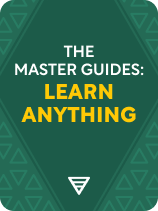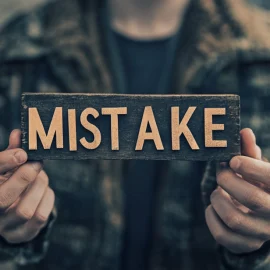

This article is an excerpt from the Shortform book guide to "The Master Guides: Learn Anything" by Shortform. Shortform has the world's best summaries and analyses of books you should be reading.
Like this article? Sign up for a free trial here.
What’s the most effective form of studying? How long should you wait between learning and self-testing?
You can remember what you learn and strengthen your learning skills by testing yourself during the learning process. We’ve collected several techniques from a few sources that will help you retain and recall information effectively.
Continue reading to learn how to test yourself and maximize your study routine.
Self-Testing
A misconception you might have learned in school is that testing comes at the end of the learning process. Rather, many experts agree that testing is a vital learning tool for improving your ability to recall and synthesize information. You can learn how to test yourself and get ahead in the game. Self-testing engages your brain in different ways than simply absorbing information. And, by using appropriate techniques to your advantage, you can strengthen both your memory of a subject and the skills involved with it.
In Learning How to Learn, Barbara Oakley and Terrence Sejnowski write that the most effective form of studying is active recall, which consists of reproducing or rephrasing ideas from memory, rather than passively rereading them. If you’re memorizing facts, try to recite them or write them down from memory—don’t just reread them in your textbook or from your notes. If you’re learning a problem-solving technique, work through an actual problem—don’t just read an example solution. If you’re learning a hands-on skill, practice doing the work instead of watching someone else. When you actively test your knowledge, your brain strengthens synaptic connections in ways that passive learning doesn’t.
In Ultralearning, Scott Young writes that, when learning new information, you should use flashcards or free recall (writing down what you remember from what you studied) to force your brain to retrieve information on its own. This helps you commit the information to memory. When testing yourself, Young also advises giving yourself time between study and active recall. He cites research suggesting that this small delay makes it more difficult to recall information, giving you a mental challenge that effectively improves learning.
The authors of Make It Stick echo Young in suggesting that self-testing’s corrective feedback is most effective when it’s slightly delayed. Immediate feedback can become a crutch—like learning to ride a bike with training wheels. The correction is so automatic that you begin to rely on that support, which inhibits you from truly learning and mastering a skill.
They also emphasize that self-testing should be difficult and frequent. More difficult retrieval leads to better retention. The harder your brain has to work to retrieve the information, the more firmly it cements it in your memory. Frequent testing also improves retention by deepening your comprehension and improving your ability to apply the knowledge in different contexts. And the longer you continue regular testing—even after you feel that you’ve mastered the skill—the longer-lasting your retention will be.
| Example: Jack and Sara Never Stop Learning To follow her dream, Sara has to pass her high school physics class and the standardized tests used for college admissions. To prepare for her exams, she takes practice tests, reviews her answers, and tests herself again. At the same time, her father is working up the courage to perform in front of a crowd of total strangers. He plays “dress rehearsals” in private, which he records and listens to later. From those, he can identify problems with his technique that he doesn’t notice while he’s playing. It’s a happy day when Sara receives her college acceptance letter. To celebrate, Jack gives her a present—a private concert of five songs he’s learned specifically for this occasion. Neither has achieved their long-term goals yet, but they’ve both worked diligently to learn new skills and have crossed the next stepping stone to realizing both of their dreams. |

———End of Preview———
Like what you just read? Read the rest of the world's best book summary and analysis of Shortform's "The Master Guides: Learn Anything" at Shortform.
Here's what you'll find in our full The Master Guides: Learn Anything summary:
- How you can learn anything you want at any point in your life
- Advice from experts on how to master the skill of learning
- A guide on how to improve your memorization, comprehension, and more






